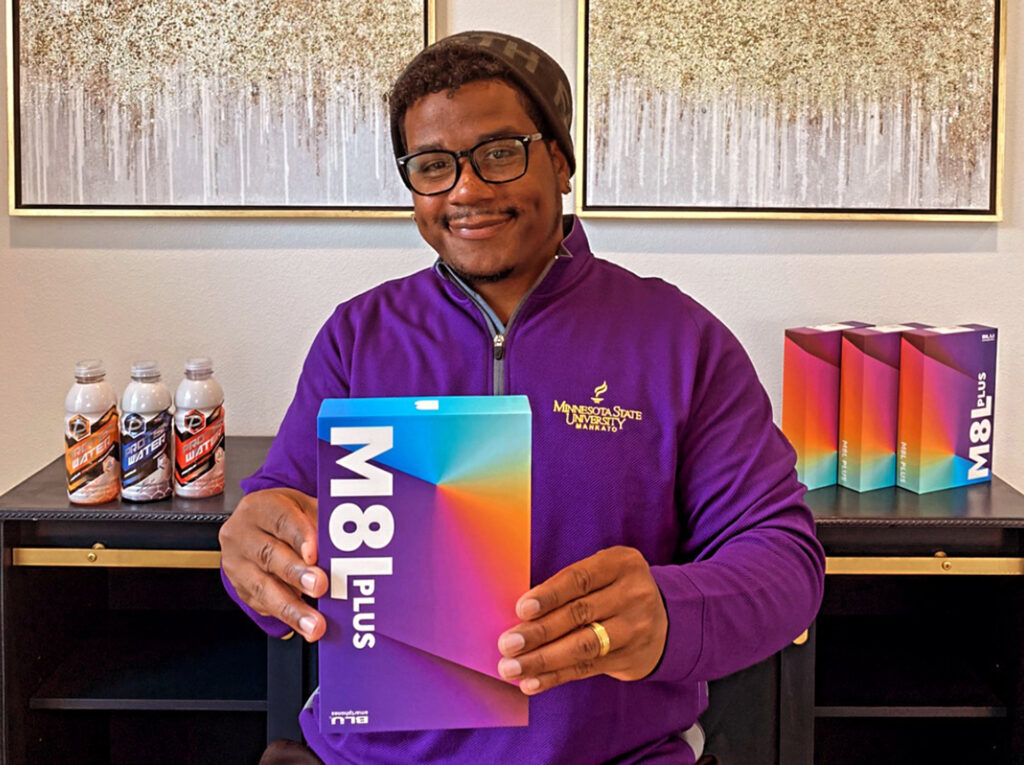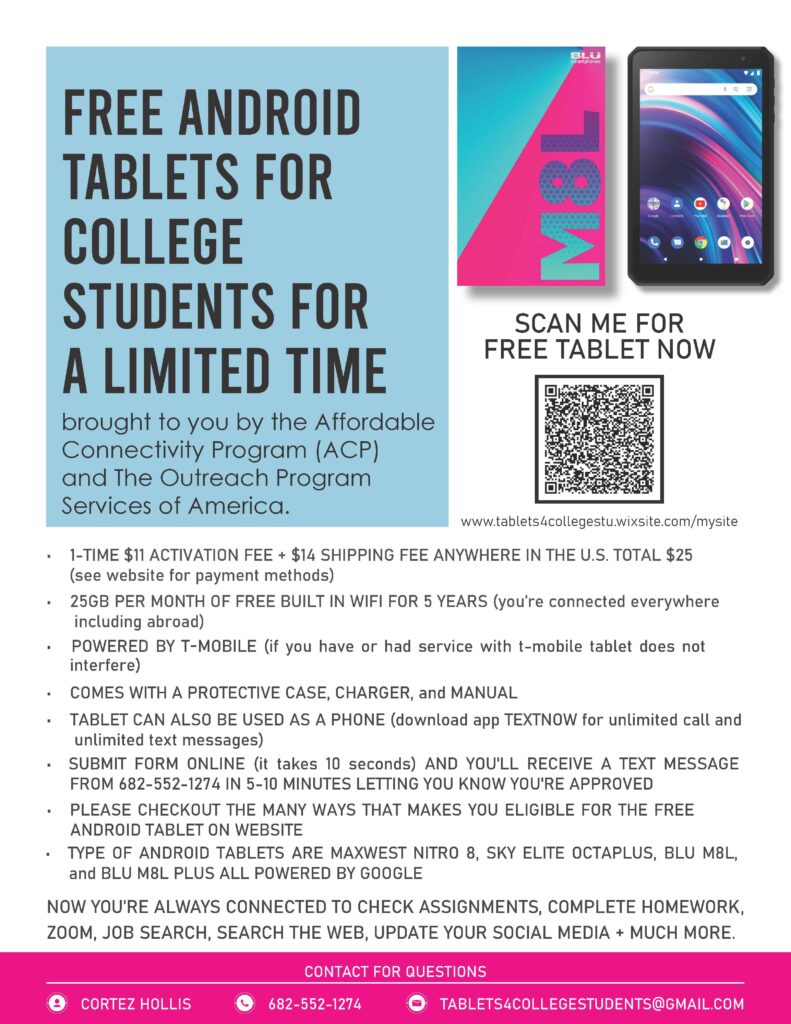Over 1,000 Given Each Week for $11 Fee + $14 Shipping

by LENNY KOUPAL, CSU Communications Coordinator
If you are an eligible student in need, Cortez Hollis may have a brand new wi-fi equipped Android tablet with your name on it.
Hollis, a Minnesota State Mankato graduate and current master’s candidate, is improving the lives of students and those in need by handing out about 1,000 free, wi-fi equipped Android tablets a week as part of a limited, nationwide program he first offered at Minnesota State Mankato.
To date, about 200 Minnesota State Mankato students have received tablets through the program. Hollis said he first approached Diversity, Equity and Inclusion and began working through the Multicultural Center to provide the free tablets.
“I am so grateful that MSU Mankato was the first in the country to do so on this scale. Our university is so supportive of us students.” said Hollis, who is currently working with colleges in 30 states. “My personal goal is to get tablets to at least one million college students.”
“To qualify, students only need to show they are receiving outside financial aid to pay for college such as scholarships, pell grants and federal pell grants.”
CORTEZ HOLLIS
Hollis now resides in Irvine, Calif., and is the owner and developer of Protein Water, a sports drink he created while attending Minnesota State Mankato.
A 2014 Ethnic Studies and Gender and Women Studies graduate, Hollis is completing remote graduate courses for his master’s degree in Ethnic and Multicultural Studies.
Seeking to get involved in a community-based volunteer program, Hollis began working with Outreach Program Services of America, a Los Angeles-based nonprofit organization that connects local communities with government assistance programs.
Hollis said through OPS of America, he learned of the Affordable Connectivity Program. Created during COVID, the ACP provides $14.2 billion to assist low-income families with connective devices and internet access.
A portion of the funding provides Android tablets with free T-Mobile access to qualifying individuals, including college students.
“To qualify, students only need to show they are receiving outside financial aid to pay for college such as scholarships, pell grants and federal pell grants,” Hollis said.
Other qualifiers are those receiving SNAP or EBT benefits, Social Security benefits, aid to veterans, or are homeless, Hollis said.
Online application seeks basic information and verification of benefits an applicant receives.
“They press submit and in 5 minutes they’ll get a text message or an e-mail saying that they’ve been approved,” Hollis said.
Once approved, students pay an $11 activation fee.
Shipped cost for approved orders is $14. Orders are shipped out twice a day and individuals receive their tablets within a matter of days.
For qualifying recipients, the tablets are theirs to keep for the one-time total cost of $25, Hollis added.
Through an agreement between ACP and T-Mobile, the 8-inch Google M8L+ tablets include 25 gigabytes of free built-in wi-fi access a month for five years. Users do not have to be T-Mobile members to have data and wi-fi access.
“They can be Verizon and still get it. They can be AT&T and still get it. It doesn’t matter who your service provider is,” Hollis said.
The tablets can also be used as a phone.
Along with schools, Hollis said he had collaborated with various churches, nursing homes and community groups to share the ACP program.
He even partnered with WalMart which provided him retail store space to enroll recipients.
“People ask me ‘how much do you get paid?’ When I tell them I don’t get paid, everybody seems really surprised,” Hollis said. “I get paid spiritually. I love being connected and in a position to help. Seeing the difference it makes in people’s lives on an everyday basis, is everything to me. It’s what I want to do with my life.”

